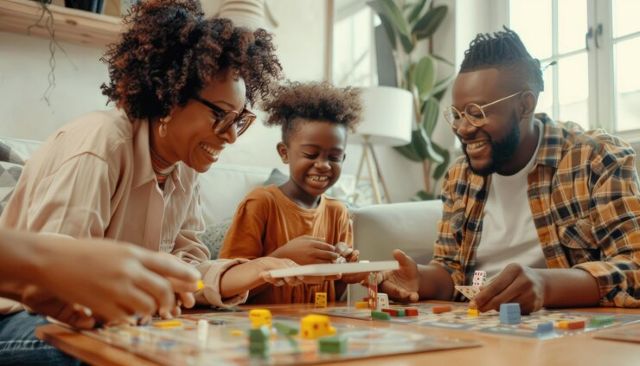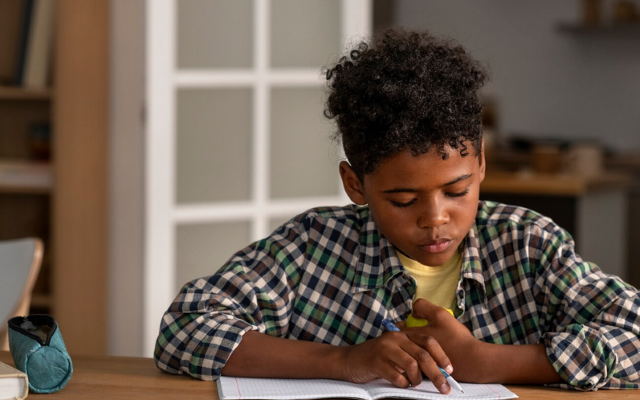A growing body of research is shining a light on something parents and teachers have suspected for years, kids learn better when they feel better. A new analysis published in the Review of Educational Research found that school-wide social-emotional learning (SEL) programs don’t just support emotional growth, they may also boost academic performance in meaningful ways.

According to the study, teaching students skills like emotional regulation, perspective-taking, problem-solving, and empathy can lead to higher standardized test scores and stronger GPAs.
“Our research demonstrates that for students who participate in explicit SEL programs—particularly programs that last more than one semester—students can expect to see at least an 8.4% increase in their overall academic achievement,” says Christina Cipriano, PhD, EdM, associate professor at the Yale Child Study Center and director of the Education Collaboratory at Yale in a recent interview with Parents.com. “This could be the difference between a C and a B, or a B and an A.”

Researchers examined 40 studies across 12 countries, covering nearly 34,000 students. They found that kids receiving SEL instruction as a standalone subject improved overall academic performance by 4.2 percentile points. The gains were even clearer when broken down by subject, 6.3 percentile points in literacy and reading, and 3.8 percentile points in math.
“Cognition and emotion are inextricably tied,” says Dr. Cipriano. “When students are provided with specific skills to manage their emotions in healthy and productive ways, they are more available to learn and benefit from explicit instruction in their classrooms across academic domains.”

Exactly what does SEL actually teach?
SEL goes beyond kindness and teamwork — though those matter too. It helps kids:
- recognize and regulate their emotions
- solve conflicts
- build healthy friendships
- handle stress
- understand others’ feelings
“Showing empathy, handling conflict, recognizing emotions, and having successful friendships are the hallmarks of SEL,” says Sarah Davidon, EdD, senior policy advisor at Georgetown University School of Medicine. “Social-emotional learning is central to ensuring a healthy start. Schools—where children spend most of their waking hours—can be important places for supporting social-emotional needs.”
Learning these skills requires vulnerability and trust. “When children have strong social skills and feel safe with their peers and the adults teaching them, this process goes better,” says Kevin Dahill-Fuchel, LCSW, executive director at Counseling in Schools.
And it’s not just about feelings, SEL creates better learners. “Our prior research demonstrated that explicit SEL significantly improves students’ feelings of connection and belonging at school,” adds Dr. Cipriano.

SEL can be especially powerful for students facing poverty, trauma, or systemic inequities. “When social-emotional learning is embedded into daily teaching and overall school culture, it can help to build cognitive skills that some students might not have had access to in their early years,” says Dr. Davidon. “Students who learn to manage stress and collaborate effectively are better equipped to navigate challenging academics. These benefits are especially impactful for students who may not have had access to early enrichment or stable learning environments.”
SEL also helps shape healthier school cultures. As R. Elizabeth Capps, PhD, from Case Western Reserve University explains, focusing on emotional well-being “… can build a positive school climate that’s useful for learners from different backgrounds.”
“When a student’s social-emotional well-being starts to improve, it looks like more positive interactions with teachers and peers, better ability to handle and persist through academic challenges, and greater motivation to learn and participate in class,” says Dr. Capps.
Students with strong SEL skills tend to have:
- better attendance
- improved grades
- fewer behavioral issues
- higher engagement in learning

According to the experts, here are ways to support SEL at home:
- modeling emotional regulation
- talking openly about feelings
- reading stories and discussing characters’ emotions
- practicing problem-solving together
- maintaining predictable routines
- validating your child’s emotions while setting boundaries
SEL doesn’t require special tools or programs. Families can reinforce these skills through everyday interactions. “It’s about intentional, emotionally-attuned interactions that can happen throughout the day,” says Emily Waitt, LMFT.







